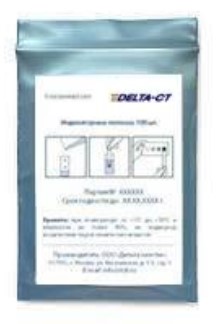Barbecue season: what is the danger of salmonellosis and how to avoid infection

August 5, Minsk. Anastasia Babilo, an epidemiologist at the Minsk City Center for Hygiene and Epidemiology, told BelTA about the danger of Salmonella infection and how to avoid infection.
"In the warm season, pathogens of bacterial intestinal infections are activated, the leading place among which is occupied by salmonella infection. With an increase in the number of trips to nature and summer cottages, the risk of infection also increases, especially when cooking on a fire. Now in Minsk there is a seasonal rise in the incidence of salmonella infection among of the population, cases are registered both among adults and among children, children under 2 years of age are at risk,” said Anastasia Babilo.
The epidemiologist explained: salmonellosis is an infectious disease caused by bacteria of the genus Salmonella. In most cases, it occurs with a predominant lesion of the digestive tract (abdominal pain, nausea, vomiting, diarrhea).The main source of infection is farm animals (cattle, pigs) and birds (chickens, geese, ducks, turkeys), and an additional source is a person or carrier sick with salmonellosis. Infection of people from animals occurs by food through the use of meat and meat products of poultry or animals, as well as eggs, cream products, which may contain salmonella.
According to Anastasia Babilo, the risk of contracting a salmonella infection also increases because, multiplying in a finished dish, salmonella does not change its appearance, taste, or smell, and the pathogen itself is well preserved in the external environment and multiplies in food products. For example, salmonella can survive in milk for up to 20 days, in sausages - from 2 to 4 months, in butter - up to 4 months, in frozen meat - 6 months, in carcasses of birds - more than a year, in egg powder - 3- 9 months, in soil - up to 18 months. Salting and smoking have very little effect on them, and freezing even increases the survival time of microbes in foods.
At a temperature of 80 degrees, salmonella die within 3 minutes, at 100 degrees - instantly. Therefore, the correct culinary heat treatment of products is important: it is necessary to thoroughly fry and boil the products, signs of the readiness of meat products are the release of colorless juice at the cut site.
In order not to be at risk of salmonella infection, it is necessary to observe the terms and conditions of food storage, not to purchase products from random people or in places of unauthorized trade, and not to eat meat that has not passed veterinary control. When cooking, sufficient heat treatment of dishes should be ensured: meat and poultry should be well boiled or fried on both sides under a lid; it is not recommended to eat raw eggs, soft-boiled, in the form of fried eggs. Contact of raw and prepared food products should be avoided: for raw meat, fish, poultry and for cooked foods, it is necessary to use different cutting boards and knives, make sure that raw meat and poultry are not stored in the refrigerator in close proximity to ready meals.
"The leading measure for the prevention of all intestinal infections is personal hygiene: it is necessary to wash your hands - before cooking and eating, after each break in the cooking process, after going to the toilet, after coming from the street, after contact with pets," Anastasia Babilo emphasized. .
When relaxing in nature, you need to properly prepare for the trip: take liquid soap or hand sanitizer with you, place perishable foods in a cooler bag or refuse them altogether, use only bottled water, thoroughly wash vegetables, fruits, berries. Particular emphasis is on sufficient heat treatment of meat when cooking shish kebabs (thoroughly fry). Swim only in places specially designed for this purpose.




























































